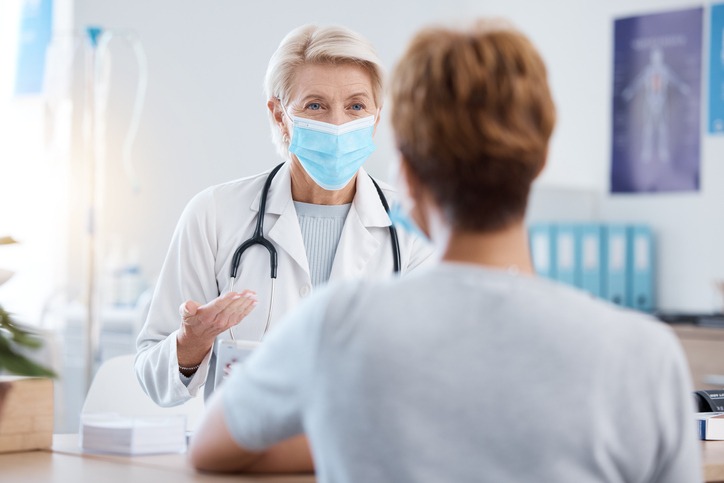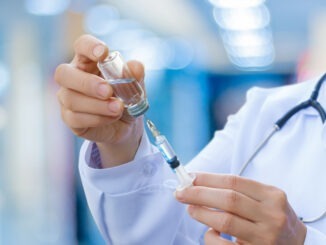
As reported by Pulse, Canon Street Medical Centre in Leicester has reintroduced mandatory face mask usage for all patients attending the surgery in an effort to safeguard vulnerable individuals, aligning with local medical authorities’ support and guidance
It comes as the start of the autumn Covid vaccination programme in England has been brought forward due to concerns over a new variant.
Practice manager Mukta Modi told Pulse: ‘We are preparing for the autumn vaccination programmes and this is a precautionary measure to protect staff and our vulnerable patients.
‘This has been discussed with our patient participation group who have been very supportive.’
Leicester, Leicestershire and Rutland LMC chair Dr Grant Ingrams told Pulse: ‘The LMC would support any practice to carry out their own risk assessment and to implement what they feel they need to protect their staff and patients. The number of patients with covid is increasing again.
‘Practices have to make a decision that suits them – if they feel the risk is going up, and that might be for different reasons. As an LMC we would back any practice that comes to this conclusion after a risk assessment.
‘We have a requirement to keep our staff, patients and visitors to the practice safe.’
An ICB spokesperson said current guidance for GP practices across Leicester, Leicestershire and Rutland advises that mask-wearing in clinical areas ‘can be locally risk assessed by individual practices’.
They added: ‘It is for each practice to make their own decisions on mask-wearing for staff and face coverings for patients, as well as all other Covid precautions.
‘This guidance is in line with the current recommendations from NHS England.’
NHS England told Pulse that ‘local decision-making based on local circumstances’ is how settings should be deciding on any enhanced measures that may be appropriate.
Its most recent guidance around face masks said: ‘Outpatients (including urgent and emergency care and primary care) with respiratory symptoms who present for treatment should be asked to wear a facemask/covering (or offered one on arrival unless placed in a single room) if this can be tolerated and is deemed safe for the patient.
‘Outpatients without respiratory symptoms are not required to wear a facemask unless this is a personal preference.
‘The request for patients to wear a facemask must never compromise their clinical care, such as when oxygen therapy is required or where it causes distress, eg, in paediatric/mental health settings.
‘Visitors and individuals accompanying patients to inpatient, outpatient appointments or the emergency department are not required to wear a facemask unless this is a personal preference.’
Patients had been required to wear face masks in GP surgeries during the pandemic until June last year.
Elsewhere, Lincolnshire LMC told Pulse that practices in the area will be monitoring any further developments on the evolving data around the severity and transmissibility of the new variant.
Dr Reid Baker, LMC medical director, said: ‘Since the beginning of the Covid pandemic, practices have been cognisant of the IPC guidance and also performed their own risk assessments to appropriately protect their patients and staff.
‘While mandatory mask wearing is not currently implemented across Lincolnshire practices, this would be reviewed by our practices should the data or their risk assessments support that approach.
‘Our practices want to minimise direct risk of Covid (and any other infection) transmission to patients and staff.
‘If required, the implementation of wearing of face masks will be crucial to prevent staff illness that impacts on our ability to provide GP services at a time of already unprecedented and escalating demand and pressure on GP services.’
Last month, a report from the Royal Society concluded measures such as lockdown, social distancing and face masks were ‘unequivocally effective’ in reducing the spread of Covid-19 in the early days of the pandemic buying time for the development of vaccines and drug treatments.


Be the first to comment